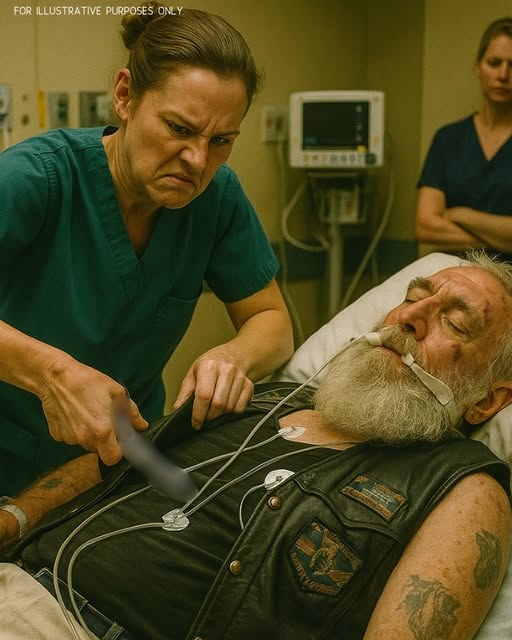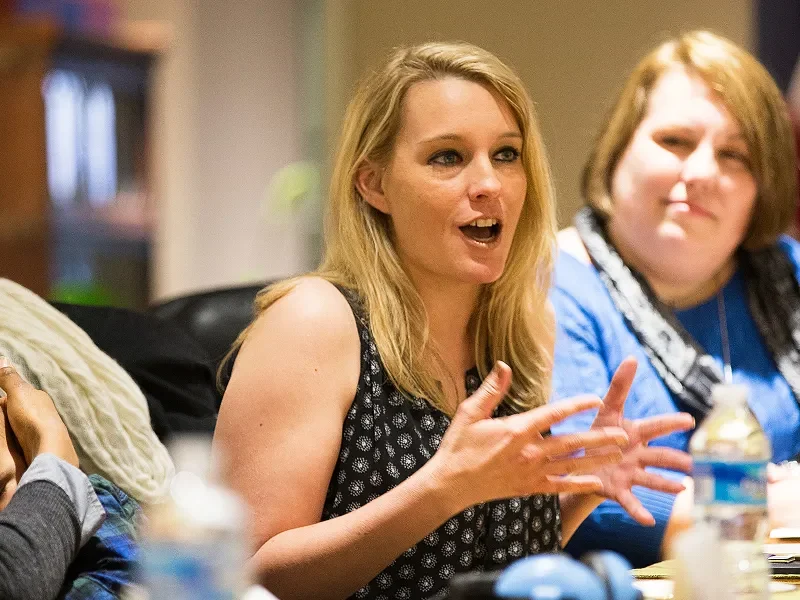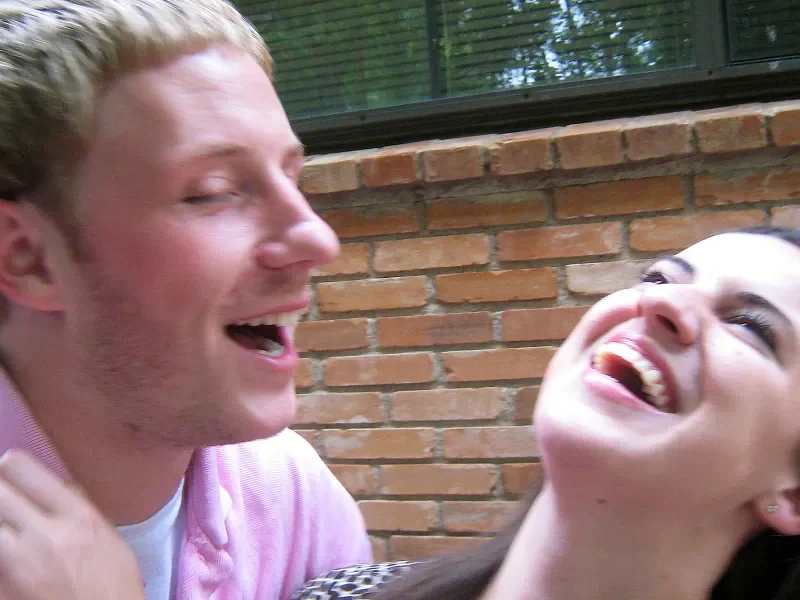When my 68-year-old father had a massive stroke while riding his Harley, the ER staff greeted him with chilling indifference.
As they wheeled him in, I overheard a doctor mutter, “Another organ donor who thought he was invincible,” not realizing I was close enough to hear.
He lay unconscious, leather vest still on, stained with blood. His silver hair was matted, his arms inked with fading tattoos. I saw nurses exchange looks, judging the smell of engine oil, the patches from military tours, and the rough exterior.
Then one of them pulled a photo from his pocket: me, in a graduation gown. Their expressions shifted. Surprise softened their faces. But their first impression had already framed him—an aging biker, not a man worth saving.
What they didn’t see was who he really was: a decorated combat medic, a devoted single father, a weekly volunteer who read to children with cancer. A man who built a nonprofit that raised millions for veterans struggling with PTSD. None of that mattered to them. They had already reduced him to a stereotype.
For illustrative purpose only
That night, as I sat in the ICU watching machines breathe for the strongest man I knew, I made two promises: he would receive the care he deserved, and when he recovered, they’d regret how they treated him.
I had no idea those promises would uncover something bigger.
Or that I’d be forced to reckon with my own discomfort over his rough edges.
The next morning, I returned in my sharpest suit, ready to advocate. But he surprised me. Awake, unable to speak, he shoved a notepad toward me. In shaky letters, he had written: “CHECK ON KATIE.”
“Who’s Katie?” I asked.
He wrote: “NEW GIRL. CAN.CER WARD. SCARED. PROMISED I’D BE THERE.”
Even near death, his first thought was of a frightened child. That was who he was.
The crash hadn’t been his fault. He’d laid the bike down to avoid hitting a reckless driver. The stroke came from the trauma. The helmet I gave him likely saved his life.
Later, the neurologist, Dr. Mercer, gave a clinical update: brain swelling, uncertain outcome. Then he noted traces of cannabis in his system.
“It’s prescribed,” I said sharply.
For illustrative purpose only
“Medical marijuana—for combat-related PTSD. You’d know that if anyone had read his chart.”
When I explained who my father was—a veteran, a children’s hospital volunteer, and the father of a malpractice attorney—Mercer changed his tone. He didn’t need to know I hadn’t practiced in years.
Back in the ICU, I spoke with Nurse Patel about Katie. When I mentioned my father’s volunteer work, something shifted in her expression. “That’s… unexpected,” she said.
“People aren’t always what they seem,” I replied. “Just like I’m sure you’re more than your name tag.”
She nodded. “He’ll be treated with the respect he deserves.”
I sat beside my dad, remembering the man who raised me solo after my mother died, who rode cross-country with me on the back of his bike, who never let me see how hard that life had been.
As a teenager, I’d asked him to park down the street when picking me up. I’d been embarrassed. He never took it personally. He just kept showing up—loyal, kind, and true to himself.
Now it was my turn to defend him.
For illustrative purpose only
I called Children’s Memorial. The woman who answered lit up at the mention of “Road Dog.” When I explained what happened, she offered to gather cards and messages from the kids.
Next, I called Jake Martinez, Dad’s best friend and co-founder of the Veterans Motorcycle Association.
“I’ve got a plan,” I said.
Jake responded without hesitation. “Whatever you need. You’re his daughter, all right.”
By afternoon, the tone in the ICU began to shift. A respiratory therapist chatted warmly. An orderly dropped off a motorcycle magazine. One nurse smiled and repositioned his blanket.
Then the front desk called. A delivery had arrived—extensive, they said.
It was Katie. Seven years old, bald from chemo, wearing a headscarf. She was surrounded by handmade cards. “Grandpa Road promised he’d be here,” she said. “He never breaks promises.”
She held out a stuffed dog.
“This is Brave. He gave it to me, but I think he needs it more now.”
With permission, I wheeled her into the ICU. She told him about the cards and the other kids. He managed a thumbs-up through the haze of pain. When she left, she handed him a CD of get-well messages.
Outside, nurses and doctors watched in silence.
That night, they treated him differently. They explained each step, called him by name, and gently tucked Brave back when he slipped. His room is filled with drawings, cards, and color.
I slept beside him in the chair, ready, proud.
Phase one was complete. They saw him now.
Phase two would begin tomorrow.


